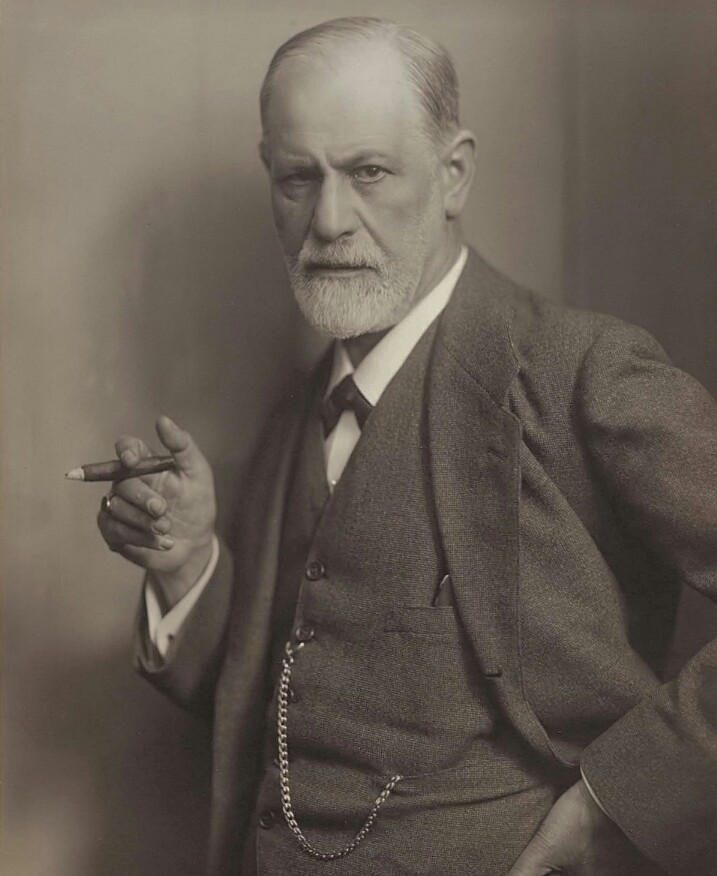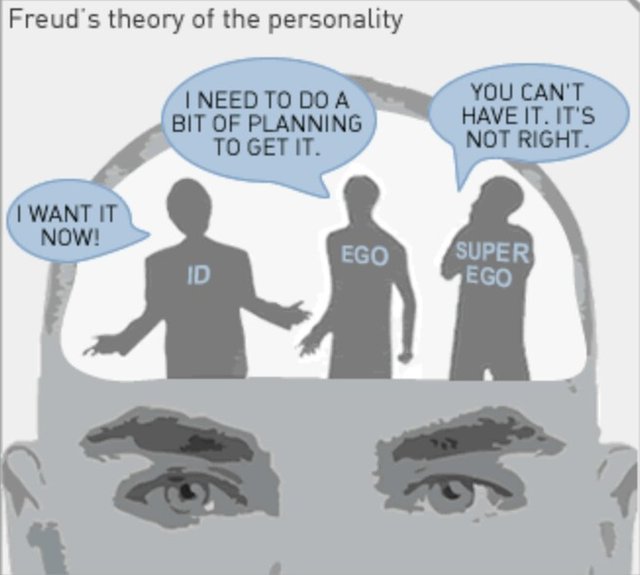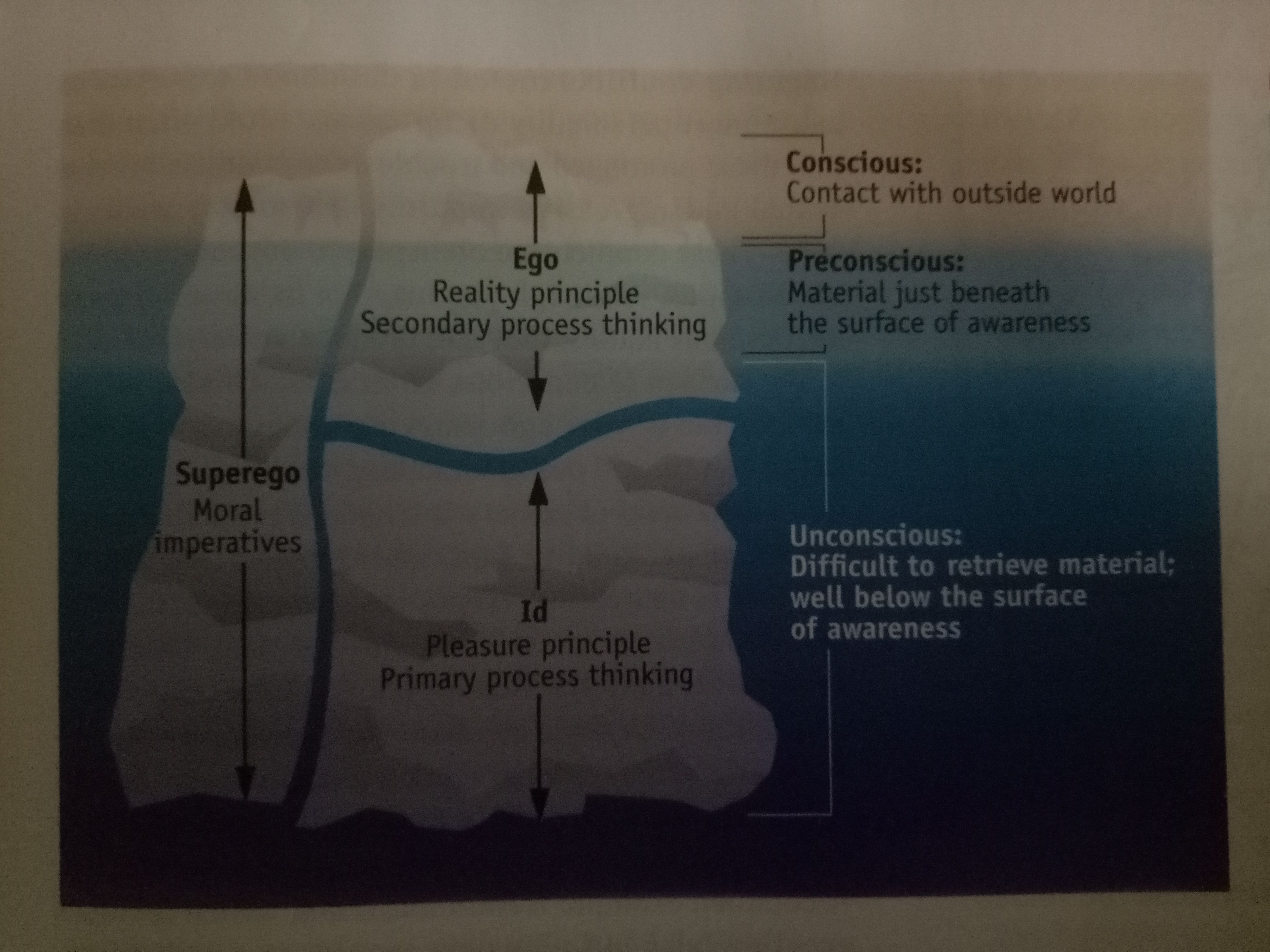Theories Of Personality Part 2: Freud's Psychodynamic Theory
Psychodynamic theory descended from Sigmund Freud’s studies that focused on unconscious mental forces. This is a follow up to part 1 found here which was an introduction to theories of personality.

en.wikipedia.org
Freud believed strongly that individuals’ childhood experiences firmly determined their lives and personalities; implying one does not have control of his or her own destiny (remeber here this is a conclusion by others interpretation). He also expressed the strong shaping of personality by how one handles and copes with his or her sexual urges. Humanistic theorists found this dehumanising.
In psychodynamic theory, personality is divided into three traits or entities; this is unlike humanistic theory which is seen as one trait (self).
The psychodynamic traits are known as the id, ego and superego.

refrigenerator.blogspot.com
The id trait is present from birth at an unconscious level. It is the primitive, instinctive component of personality that operates according to the pleasure principle.
At the ego stage, an individual will compromise with the id. This is an unconscious process. The ego trait is evident at an age of approximately two years. Even though the ego stage consists of gratification as the id is, the ego engages in what is known as secondary process thinking. This thinking consists of relatively rational reasoning and leans towards problem solving. As found in some clinical observations, Antal F. Borbely, M.D (2009) explains that the ego component was found to have attributes of mediating against the actions or implications of the id and superego traits. In this regard, the ego can be thought of as having a stabilising effect as its operation is reality based. Indeed, the ego is the trait that is most exposed to the outside world.
The superego trait is the moral component of a personality. This stage emerges out of ego around three to five years of age. The moral aspect comes from being taught the concepts of right and wrong. With this knowledge, an individual tries to live up to appropriate standards. In some cases, superego can become irrationally demanding in an attempt to be perfect. In this case the individual may feel excessive guilt. This is an example of when the ego component may compensate for the superego.
Under psychodynamic theory, the id, ego and superego traits are unevenly distributed across three levels of awareness. These awareness levels consist of the conscious, preconscious and unconscious. Freud contrasted these awareness levels visually as an iceberg; the tip being the only part that presents itself externally.

Photo of the textbook "Psychology Applied to Modern Life" by Weiten, Dunn & Hammer, p37, showing the iceberg visualisation.
The conscious component represents that which a person is currently aware of. This is the tip of the iceberg. Part of the ego and superego trait is present at the conscious stages, the ego trait being most prominent. The preconscious level is just under the surface of conscious awareness. The preconscious could for example contain recent memories that easily come to hand. The preconscious also is populated by the ego trait and partly by the superego. The unconscious consists of one’s memories, thoughts and desires. Although these are deeply embedded far from the conscious awareness, they do impact on one’s behaviour. The unconscious consists of all three traits; but predominantly the id and superego.
The unconscious stage is the biggest component of the iceberg representation and hence it has the most impact on one’s personality and growth. As an individual grows, he or she progresses through the id, ego and superego, collectively creating their personality and behaviour forms. This process is predominantly transparent to the individual; a concept that contrasts with humanistic theory. Although an individual may be aware of their personal development, according to psychodynamic theory the mechanism by which it is accomplished is not apparent.
Now one can either lead one's life by the id principle, which many of us do or we can look further into this psychodynamic framework and encourage the ego and superego to play a role.
Unfortunately, Freud has received a lot of undue flack with his work here. He merely points out that there is a primitive part of us, the id and that if it plays a big role in our life it can control our personality. Whereas when all three principles are contributing the right amount and are balanced, one can grow up healthy.
In the next installment, we'll be taking a look at humanistic theory in more detail. I hope this has been of interest. I find it a fascinating area. Thanks for reading and thanks to @beulinator for assistance with the details of the theory.
all the time valid, check Insight
Hey bud are you well? This was rather intriguing indeed. The human mind with all its flaws and genius. I recently watched a doccie on Scientology not sure why this post made me think of that, but what do you make of it all and L Ron Hubbard? He eventually admitted he was stark raving mad, sad to see how many have fallen for it and still do. I feel all he really did in a way is perfect mind control indoctrination and propaganda for his own personal ego and gain, which is tragic, but ye many have seen and will continue to see the light. Cheer$;)
Hey mate going well thanks, how about you? Really glad you found the post interesting. I confess that I don't know enough about scientology to comment in any intelligent way but from little I know it does seem to show the hallmarks of requiring a suspension of dispassionate evidence based thinking but I qualify that by highlighting the point that I'm talking from a strong position of ignorance! 😄
Lol classic... Ye don't even bother it is a multimillion dollar CULT, the end. Cheer$;)
Wow wow wow.it's a great post.hope everyone like on this.go ahead.keep sharing